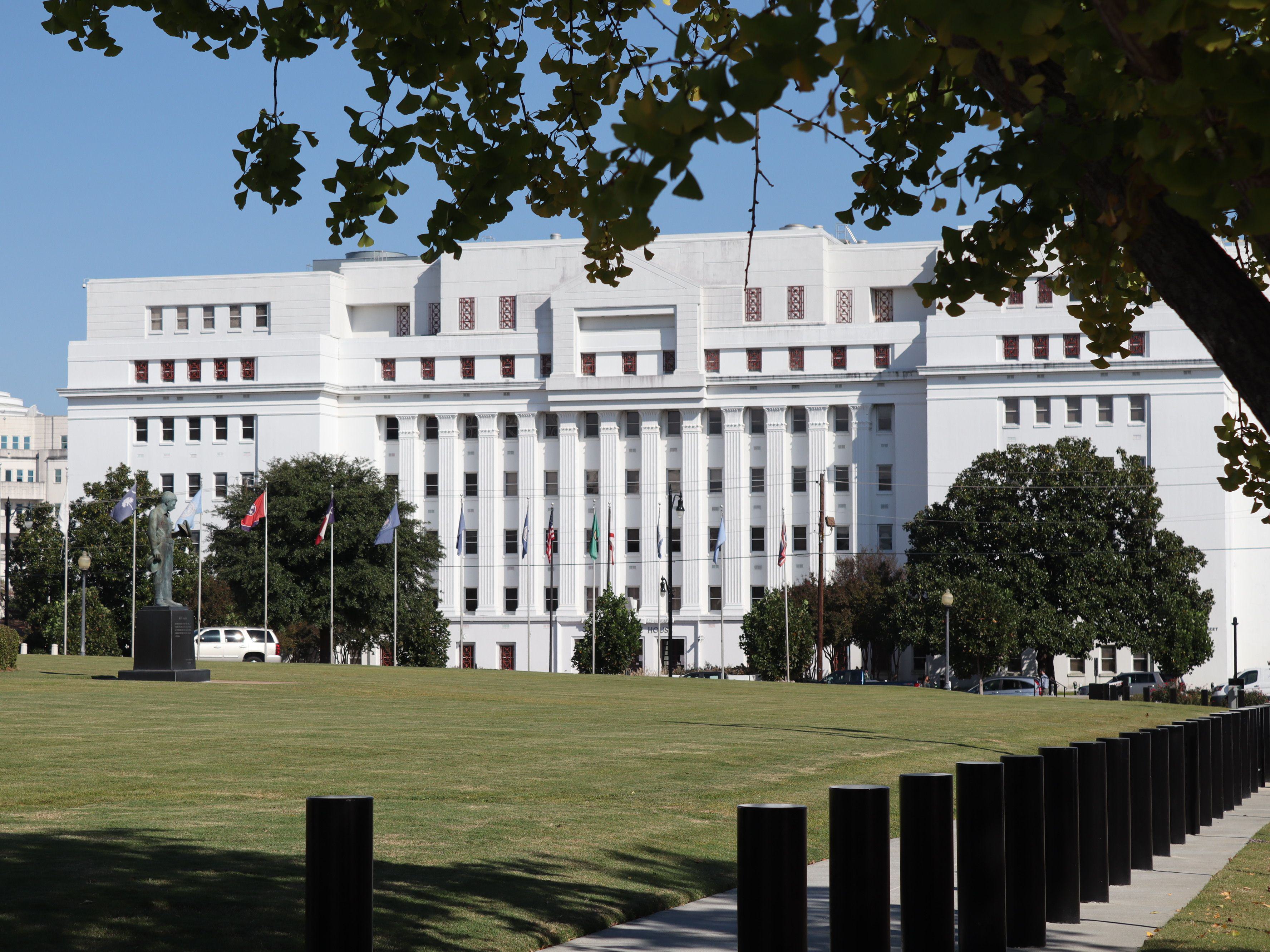The Alabama House of Representatives on Thursday passed a package of legislation that is designed to cut the tax burden on small businesses and make federal American Rescue Plan Act funds for Black and disadvantaged farmers tax-exempt from Alabama income tax.
House Bill 82 was sponsored by State Rep. Danny Garrett (R-Trussville) who chairs the House Ways and Means Education Committee.
Garrett said that HB82, “Allows a one-month extension for corporate tax filers.”
Chairman Garrett explained that currently, corporate filers have the same filing deadline as the federal government. Giving them more time will mean more accurate returns and fewer amended returns.
“The guts of the bill is the relief provided to small businesses,” Garrett said.
Garrett explained that House Bill 82 would provide an exemption of up to $40,000 in tangible business personal property from state ad valorem tax, beginning Oct. 1, 2023.
This is the tax that a business owner pays on all the chairs, tables, ovens, computers, tools, desks, furniture, etc. that it owns for the purpose of conducting the business, whether the business is making money or not.
“Collectively, this is $4 million that the state is collecting and it probably costs the businesses more than that to prepare the returns,” Garrett said. “Seventy-five percent of business filers would no longer have to pay personal business property taxes to the state.”
Garrett explained that businesses would still owe local business property taxes unless the local governments similarly raise the threshold.
It also provides that any amount of cancellation of indebtedness income resulting from loan forgiveness for disadvantaged farmers and ranchers, provided under Section 1005 of the federal American Rescue Plan Act (ARPA), shall not be treated as income under state income taxes.
The legislation also increases the threshold for sales tax collections for business filers that have to file sales taxes quarterly. Many more small businesses would just have to file annually.
Garrett said that the sales tax provision would apply to “2,500 businesses across the state.”
State Rep. Tim Wadsworth (R-Arley) said, “This will really help a lot of people who have to file sales tax returns.”
HB82 also allows businesses to pay their tax bill in cash instead of a surety bond.
Garrett said this bill is based on recommendations of the Small Business Commission.
The bill was passed out of the House Ways and Means Education Committee on Tuesday, following a public hearing.
Rosemary Elebash is the State Director of the National Federation of Independent Businesses.
“I have been with NFIB for 19 years and from the day I arrived, we have been working on the business personal property tax threshold,” Elebash said in the public hearing. “This is such a burden. Many times they pay their tax preparer more to prepare the return than they pay in the tax. I am happy to report that their voices have been heard.”
Drew Harrell is the Vice President of Government Affairs with the Business Council of Alabama.
“We are very proud of Chairman Garrett and the work that he has done to help small business,” Harrell said. “The one that helps small business the most is the exemption on business personal property...The money that they (business owners) save will go to pay payroll and other business expenses. This encourages entrepreneurship.”
Garrett explained that the American Rescue Plan Act relief fund for disadvantaged farmers is limited to African American and other minority farmers.
“No disadvantaged farmer in Alabama got a loan from USDA,” State Rep. Ralph Howard (D-Greensboro) said. “Stephen Miller has filed a lawsuit saying that it was discriminatory.”
Howard explained that he is a Black farmer, as his father, grandfather, and great-grandfather were.
“My grandfather did not get any loans from USDA,” Howard said. “My great-grandfather did not get any loans from USDA, neither did my father.
“My family has managed to hold onto land. I was the first member of my family to get a loan from Farm Services. I originally got a loan from a bank, because it was not worth the hassle.”
Howard said starting a farm is difficult and he fears many farmers will be out of business before they get assistance.
According to the fiscal note, raising the cap on personal business property will “cost $2.02 million to the Public School Fund; $1.68 million to the State General Fund; and $670,000 to the Veterans Assistance Fund. This bill could also reduce receipts to any county or municipality that, by local ordinance or resolution, adopts the same exemption for local ad valorem taxes.” The bill provision exempting the federal payments to socially disadvantaged farmers will also cost the education trust fund budget by an undetermined amount of money.
House Minority Leader Nathaniel Ledbetter (R-Rainsville) told Garrett, “Thank you for bringing this bill. A few years ago I had a bill to remove it all (the business personal property tax), but this is a good step.”
The bill received a favorable report from the committee unanimously passing on Wednesday and also passed the full House 99 to zero.
“On behalf of the Small Business Commission, I thank you,” Garrett told the members of the House.
The bill now goes to the Alabama Senate for its consideration.
Thursday was day six of the 2022 Alabama Regular Legislative Session.
To connect with the author of this story, or to comment, email brandon.moseley@1819News.com.










